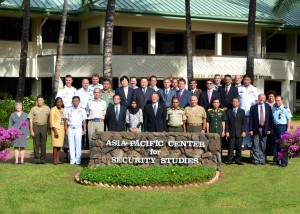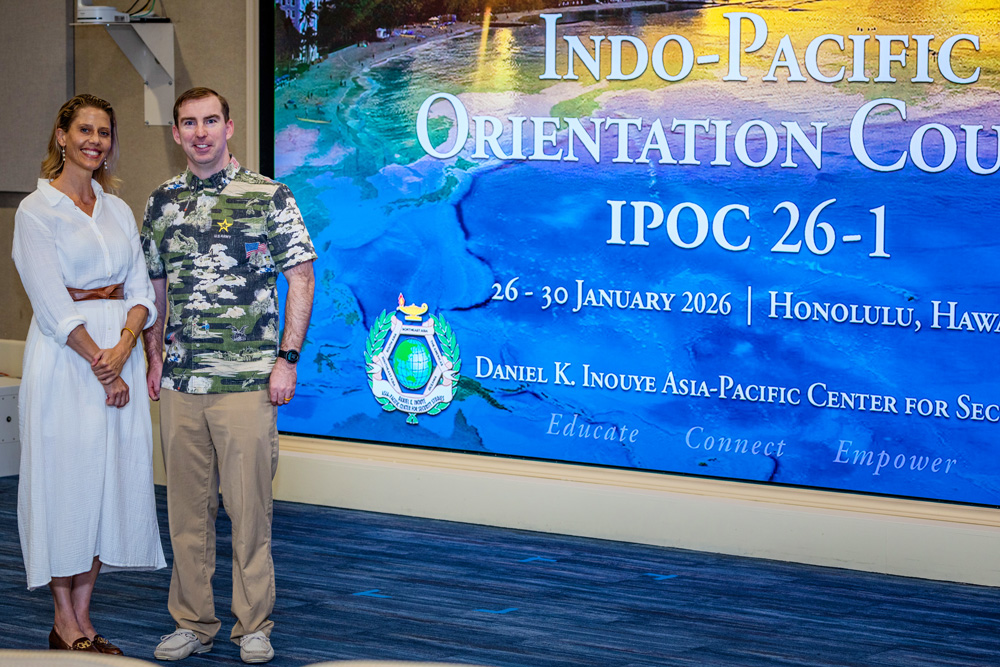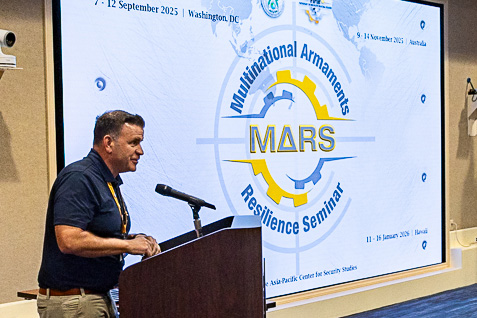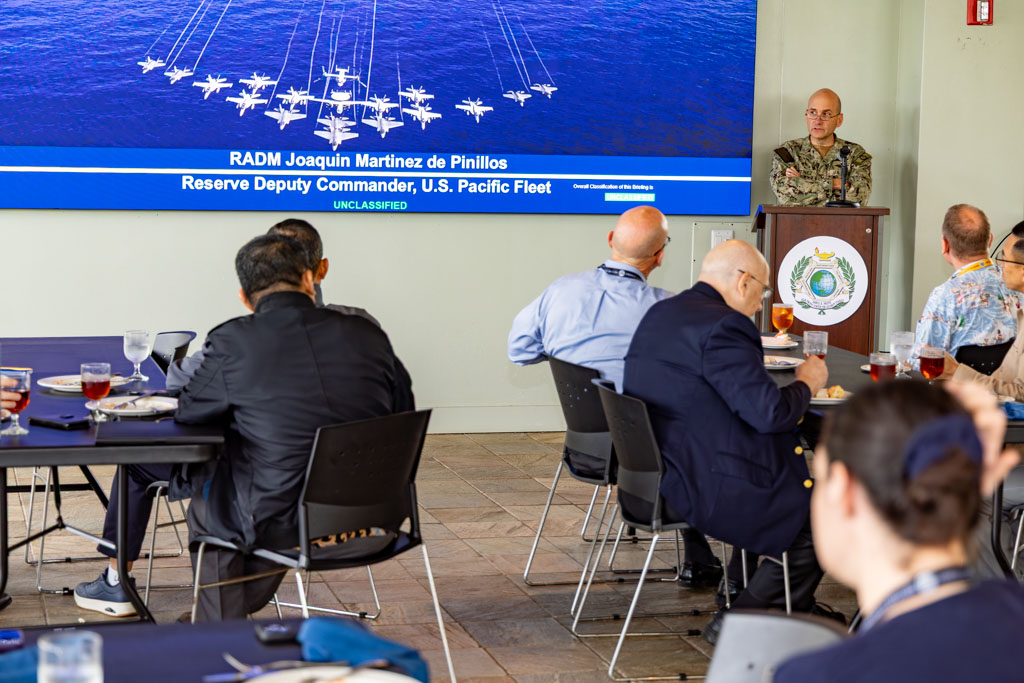 Twenty-four senior executives from 21 countries and one international organization completed the Transnational Security Cooperation (TSC) course Dec. 9 at the Asia-Pacific Center for Security Studies in Honolulu. They included military and civilian leaders from Afghanistan, ASEAN, Australia, Bangladesh, Cambodia, Canada, China, Fiji, Indonesia, Japan, Laos, Malaysia, Maldives, Mongolia, Nepal, New Zealand, Republic of Korea, Russia, Thailand, the United Kingdom, the United States and Vietnam.
Twenty-four senior executives from 21 countries and one international organization completed the Transnational Security Cooperation (TSC) course Dec. 9 at the Asia-Pacific Center for Security Studies in Honolulu. They included military and civilian leaders from Afghanistan, ASEAN, Australia, Bangladesh, Cambodia, Canada, China, Fiji, Indonesia, Japan, Laos, Malaysia, Maldives, Mongolia, Nepal, New Zealand, Republic of Korea, Russia, Thailand, the United Kingdom, the United States and Vietnam.
The course is an intensive program for current and future senior regional influencers/leaders; military officers at the one- to four-star level, as well as their civilian equivalents from the Asia-Pacific Region. Curriculum emphasizes the impact of current and future change in the region, as impacted by regional and global security threats. Course includes guest speakers, interactive seminar workshop scenarios addressing complicated transnational threats, and discussions with Senior U.S. Pacific Command officials, all intended to share perspectives and further identify cooperative approaches to transnational security issues of common concern.
The Asia-Pacific Center for Security Studies is a Department of Defense academic institute that addresses regional and global security issues. Military and civilian representatives, most from the U.S. and Asia-Pacific nations, participate in a comprehensive program of executive education, professional exchanges and outreach events, both in Hawaii and throughout the Asia-Pacific region. The Center supports the U.S. Pacific Command’s objective of developing professional and personal ties among national security establishments throughout the region. APCSS’ mission is to build capacities and communities of interest by educating, connecting, and empowering security practitioners to advance Asia-Pacific security. It is one of five regional centers under the Defense Security Cooperation Agency.









Congratulations.